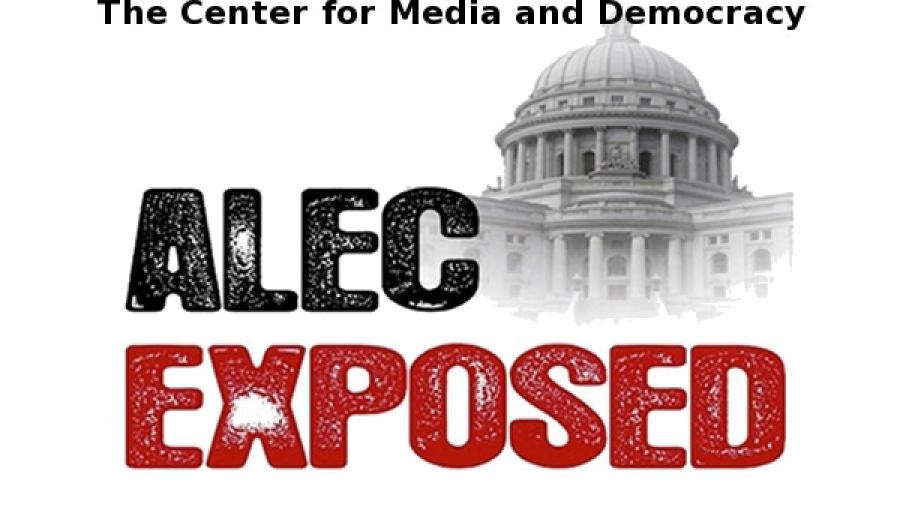Submitted by PR Watch Admin on

The American Legislative Exchange Council (ALEC) is slated to roll out its annual "Rich States, Poor States" publication this week. The document, whose lead author is economist Arthur Laffer, is sold to the press as an objective, academic measure of state economic performance, but should instead be viewed as a lobbyist scorecard ranking states on the adoption of extreme ALEC policies that have little or nothing to do with good economic outcomes.
The ALEC entity that publishes the report, the Center for State Fiscal Reform, has received large grants from the Bradley Foundation, the Searle Foundation and the now-closed Claude M. Lambe Foundation, one of the Koch family foundations. These foundations are major funders of a national right-wing infrastructure that includes ALEC and the State Policy Network, 64 state-based think tanks that produce reports, talking points and more to advance ALEC’s agenda of tax breaks for corporations, steep budget cuts and attacks on unionized workers.
ALEC brings together corporate lobbyists and state legislators to vote on "model" bills behind closed doors, which are then introduced by ALEC state legislators across the country. ALEC is almost entirely funded by industry, including Koch Industries, which has long served on the ALEC board, Altria (the former Phillip Morris) and Exxon Mobil. (See the full list of ALEC corporate members here.)
ALEC task force meetings, where model bills are discussed and voted on, are closed to the press and the public. Under fire for its role in promoting extreme policies including climate change denial, voter suppression and "Stand Your Ground" laws, ALEC has lost over 100 corporate sponsors in the last few years, including some of the nation’s largest firms — Google, General Electric, General Motors, Amazon, Wal-Mart and more.
ALEC was featured in Monday’s Washington Post after it filed “cease and desist” letters against Common Cause and the League of Conservation Voters for documenting ALEC’s role in promoting climate change denial. Together with CMD, the groups have launched a fact-based website detailing ALEC’s fossil fuel funders, its anti-environment agenda and bills, and the climate change deniers who have been featured speakers at recent ALEC conferences.
ALEC's Methodology Has Been Debunked
Since ALEC first published its annual Rich States, Poor States report with its Economic Outlook Ranking in 2007, experts say states rated better by ALEC have actually done worse economically.
Business Insider analyst Joe Weisenthal calls the ALEC report “silly.” “Obviously ALEC is ranking states based on each state's level of deregulation and awarding the most deregulated states, but the outcomes seem to have very little bearing in where companies actually want to launch and do business.”
Good Jobs First and the Iowa Policy Project issued a report in 2013, “Selling Snake Oil to the States,” which critiqued Rich States, Poor States on methodological grounds.
The authors concluded that the criteria that ALEC uses to rank states, such as eliminating progressive taxes, suppressing wages, and cutting public services are actually a recipe for economic inequality, declining incomes, and undermining public infrastructure and education that really matter for long-term economic growth.
